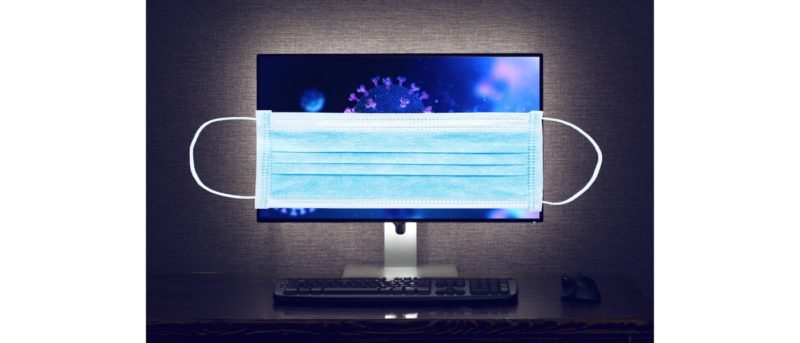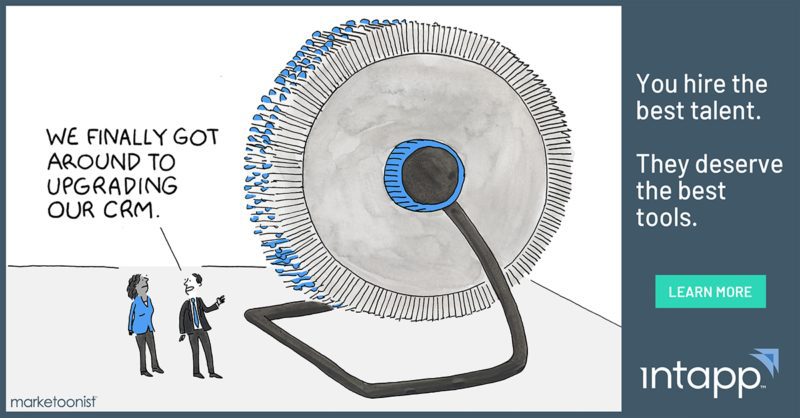In addition to the lives and livelihoods claimed by COVID-19, your CRM data is being sacrificed as well.
Of the 30 million-plus who have lost their jobs to the novel coronavirus thus far, 7 percent of these are estimated by McKinsey to be white-collar workers, with a total of 16 percent estimated to be vulnerable. McKinsey’s models further project a total of 57 million U.S. jobs to be at risk.

This means that over 9 million white-collar jobs are either at-risk, or already lost, representing over 10 percent of the U.S. white-collar workforce. This excludes the number of workers whose lives have been lost to the disease, as well as overseas workers.
One of the net results of reductions in force is that as much as 10 percent of your firm’s CRM contact data is now obsolete. This assumes that your firm’s data was pristine pre-COVID – a significant “if.”
Pre-COVID, up to 40 percent of CRM contacts sourced by attorney address books were out-of-date. This is because, on average, workers change jobs every 4.2 years. This translates to a rate of CRM contact decay of about 25% annually.
Add another 10% from COVID-19, and, well, your CRM contacts are not well.

If you agree that the value of your CRM is derived from the health of its content, here’s a question: if half of your CRM content is wrong, and it’s a coin toss as to whether any given contact is accurate, is your CRM worth half of what you paid for it?
I would argue that if a calculator gave you correct results only half of the time, that calculator is not worth half price. It’s worth zero.
A corrupted contact database not only devalues your CRM, it has real potential to harm your firm. Every bad email address sent in a mass mailing is counted and ticks your firm closer to landing on a blacklist – something that is tough to bounce back from.
What’s the solution?
Commercial data sources are useless in the near term, as they suffer from the same affliction as your CRM – awareness deficit. No one is required to inform a commercial data company that they’ve lost or changed jobs. If an omniscient database existed that could magically cleanse your data, wouldn’t everyone be using it?
These days, the best way to restore your CRM data to health lies in your email. These are three no-brainers:
- Use signature scraping: the breakthrough of signature scraping is simple: no one sends email with an out-of-date signature. Signatures are current as of the moment the sender hits the send button. Most major firms now use signature scraping as a standard part of their CRM hygiene regimen
- Use the date of last engagement: automated capture and update of date of last email engagement is another aspect of signature scraping. These days, contact culls based on date of last engagement should be conservative. If the contact has not engaged in less than 3-6 months, avoid using it in a mass mailing
- Watch bounce backs: mailing lists should be kept compact in order to minimize bounce backs. As always, bounce backs should be socially distanced from your healthy contacts.
Maintaining the health of your CRM database in the COVID-19 era will be more of a marathon than a sprint. In addition to the likelihood of more jobs being lost to the resultant economic recession, there will also be database churn from job changes, as well as people returning to work over time. Practicing sensible database hygiene increases the value of your CRM and gives your firm an edge at a time when it needs every possible advantage. In the end, it’s not just about cutting the number of bounce backs from mail you send to others.
In an era when undelivered email equals lost jobs, the bounce backs you save with a performant CRM might be your own.
Join us on Wednesday, May 13 from 8-9 AM PDT for Intapp Connect Virtual Summit – Marketing & Business Development session. Intapp experts will explore how to develop and engage clients amid extraordinary circumstances. See an exclusive preview of Intapp DealCloud, our next-generation solution combining CRM, relationship intelligence, and experience management — all in one place. Register here to reserve your space.